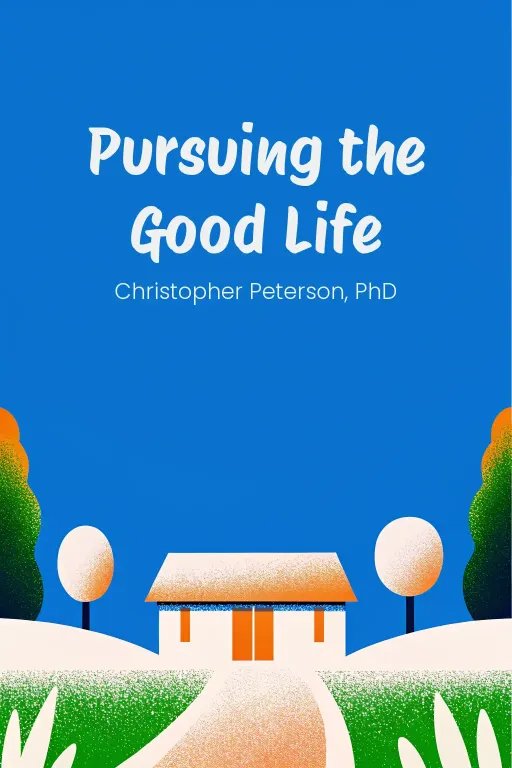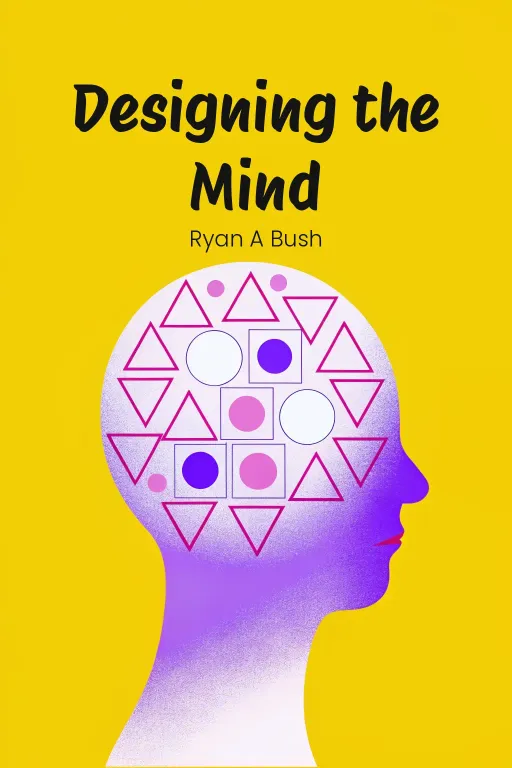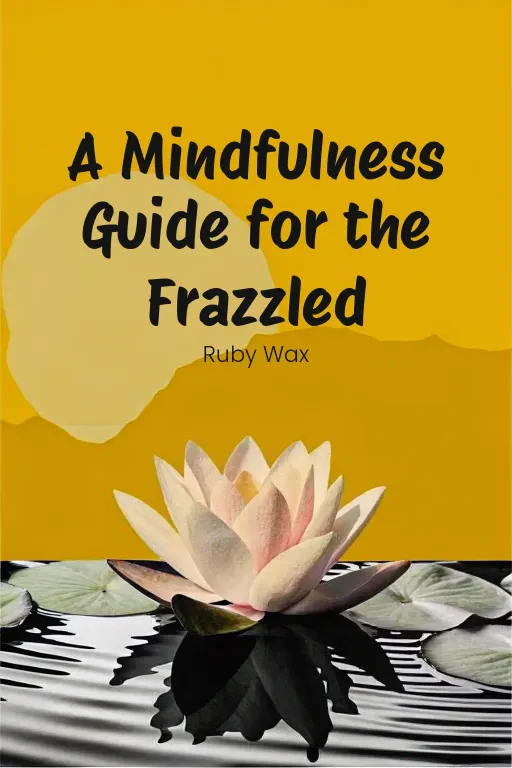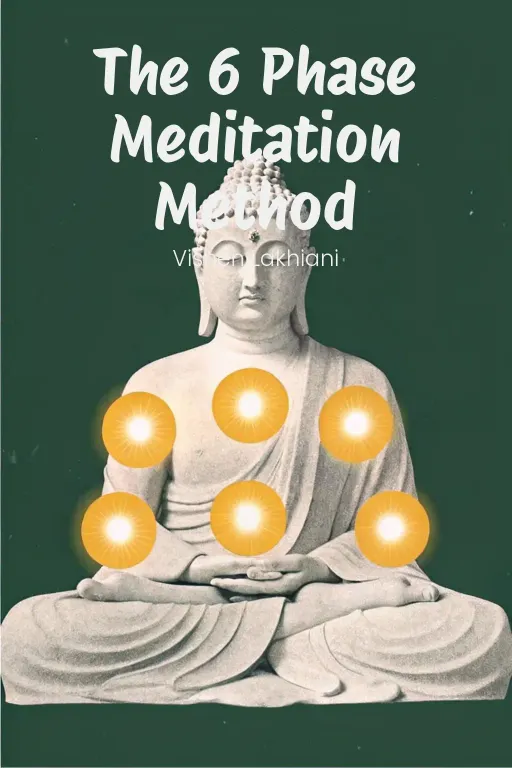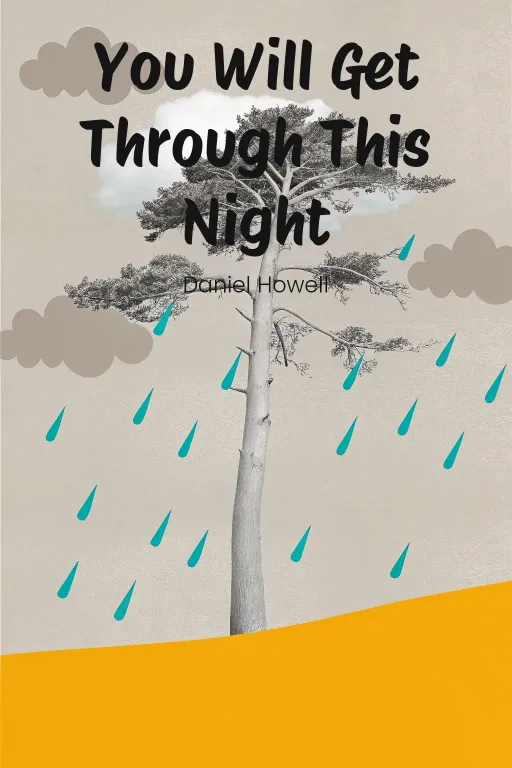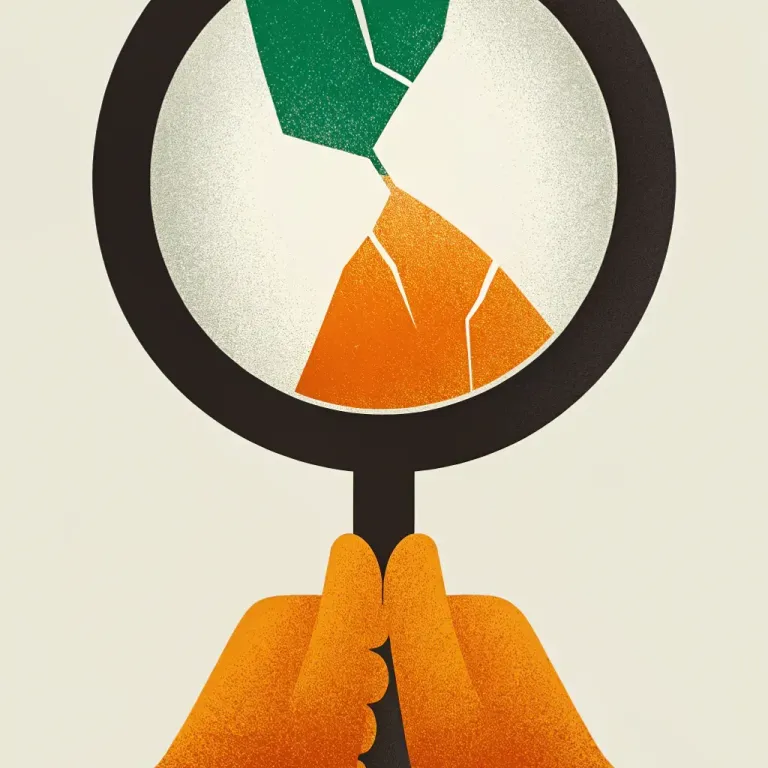
Focus Now: Reclaim Your Mind
Podcast by Beta You with Alex and Michelle
Why You Can't Pay Attention — and How to Think Deeply Again
Focus Now: Reclaim Your Mind
Part 1
Alex: Hey everyone welcome! Let’s kick things off with a quick question: when was the last time you actually read a whole article without glancing at your phone? Or maybe finished a task without being interrupted a million times? If that sounds familiar, believe me, you're definitely not alone. Today, we're diving straight into this collective attention crisis we're all facing—and it’s much bigger than just some "bad habits." Michelle: Exactly, Alex, and it's kind of a relief to hear that. Because honestly, it feels like it's not just us being scatterbrained, but like the entire system is actively trying to destroy our focus. I mean, Johann Hari's book, "Stolen Focus," really argues that everything—from the apps on your phone to the relentless email culture at work—is practically engineered to shatter our attention span into a million little pieces. Alex: Precisely. Hari really goes beyond just blaming individual distractions. He weaves together solid science, expert opinions, and a bunch of personal stories to reveal something pretty startling, you know? It turns out our declining attention isn’t so much about personal failings as it is about the very structure of our society. It’s this cocktail of tech addiction, constant overwork, environmental factors, and even how we read—or don’t read—these days. Michelle: Sounds… cheerful. But Hari isn’t just leaving us to wallow in a bunch of depressing statistics, right? I mean, there's gotta be some "how-to-fix-it" advice in there too, right? Alex: Oh, absolutely! That’s a huge part of what we're talking about today. We're going to break it down into three parts: first, we’ll look at who or what is really behind this fragmented focus of ours. Second, we’ll explore what it actually costs us to lose our attention—mentally, socially, culturally. And finally, we're going to discuss what we can do to pull ourselves, and maybe even our society, out of this whole mess. Michelle: So, basically, we're doing a whodunit for the murder of our attention, followed by the autopsy, and then – of course – prescribing a cure. Should I be taking notes, or would that actually defeat the purpose of focusing? Alex: I think Johann Hari would actually approve! Let’s get to the bottom of all this.
Systemic Causes of the Attention Crisis
Part 2
Alex: Okay Michelle, so to “really” dig in, you were saying it’s not just us that's struggling with focus, right? There's a bigger system at play. What's the root of all this? Michelle: Exactly, Alex. I think there is something else going on. Alex: Well, at its heart, it's the accelerating pace of our lives, fueled by technology and this constant barrage of information. Hari talks about how we're constantly bombarded with notifications, emails, endless updates, throwing us into “cognitive overload”. Our brains just aren't built to handle that kind of volume efficiently. So, we end up skimming, bouncing between tasks, you know, staying on the surface instead of really diving deep. Michelle: Right, it's like being stuck in a digital pinball machine. Ping! Something else demands your attention. It's not just annoying, it's completely draining. Alex: Totally. Remember Mihaly Csikszentmihalyi? He came up with the term "flow state," and he found that we're at our most creative and focused when we're totally absorbed in one thing. But nowadays, with all the task-switching? It's almost impossible to get there. I mean, did you know that the average office worker changes tasks every three minutes, and college students every sixty-five seconds? Michelle: Sixty-five seconds? That's barely enough time to read a paragraph, never mind actually accomplish something meaningful. No wonder we're all running on fumes! Alex: Exactly! Because every time we switch gears, our brains have to pay a price. It takes extra time and energy to refocus, and that adds up over the day. What’s worse, this concept of multitasking that we’ve been told is so great? It decreases productivity. Studies show it hurts our ability to think deeply, ramps up stress, and just leads to worse outcomes overall. Michelle: Multitasking is like fast food for productivity, isn’t it? It feels like you’re getting more done quickly, but “really”, it’s just clogging up the system. And I bet all those gadgets and apps we use at work, like Slack, email, Teams, they’re only making things worse. Alex: They are. Hari calls it a "culture of constant interruption." Most of us feel like we have to respond immediately to every notification, every email. It reinforces this cycle of distraction. Fragmentation is becoming the norm, not the exception. Michelle: So, we're drowning in information, starved for focus, and the tech is actively working against us. Where else does this get messy? Alex: When we think about how technology is designed to be addictive. That's where Shoshana Zuboff's term, "surveillance capitalism," comes in. It's the idea that companies aren't just profiting from selling us products anymore, they're profiting from capturing and monetizing our attention. Michelle: So, we're the product, and our attention is the commodity? Wonderful for us. Alex: Exactly! Hari goes into how platforms like Facebook, Instagram, TikTok, they use algorithms to manipulate and hold our attention. Tristan Harris, who used to be an ethicist at Google, compares it to a magician's sleight of hand. These platforms don't just react to what we want, but they actively shape what we see to make the most reactive content – whether it's outrage, fear, or just mindless scrolling – more addictive. Michelle: The infinite scroll is pure evil genius, isn't it? You tell yourself, "Okay, just one more post," and an hour disappears, and you've absorbed… what? Hilarious cat videos, maybe? Alex: And while you're stuck in that loop, those platforms are mining your data and serving ads. What makes it worse is that it creates emotional stress and division. False information spreads six times faster than true information on social media. Algorithms prioritize sensationalism because it triggers stronger emotional reactions, and those reactions keep you clicking. Michelle: And then society wonders why everyone's at each other's throats. It’s not just differing opinions though, right? It's the literal structure of our technology fueling the fire. What about younger people? It sounds like kids are especially vulnerable. Alex: They are. It's "really" worrying. Hari talks about how platforms like TikTok and Instagram are basically rewiring adolescent brains. Kids spend hours watching short, fast-paced videos, which trains them to expect instant gratification. This isn't just a "kids these days" issue – it's shaping their cognitive development in a way that makes it much harder for them to engage in deep, critical thinking. Michelle: So instead of doing algebra or finding a cure for cancer, they are mastering the latest dance craze on TikTok? Alex: Even worse, they're suffering emotionally. There's this constant cycle of comparison and pressure created by social media. That leads to heightened anxiety and lower self-esteem. Then you add in how schools are hyper-focused on standardized tests instead of creativity. The whole idea of childhood is becoming both super structured and also mentally fragmented. Michelle: That is incredibly grim! Alright, Alex, but I know you—this isn't just a TikTok-villain story. Let's talk about how our physical environment plays into all of this.
Human Costs of the Attention Crisis
Part 3
Alex: Understanding these systemic causes really sets the stage for seeing the human cost, you know? And trust me, Michelle, that’s where it gets deeply personal—not just for individuals, but for society as a whole. Think of it like this: you've got the individual psychological toll, then the socioeconomic costs, and finally the societal implications, like polarization and misinformation. It’s a ripple effect, really. Starts in our heads and spreads outward. Michelle: Okay, so let’s go from the architecture to the aftermath. What does this attention crisis “do” to us as individuals? What’s it like being stuck in the middle of it all? Alex: Well, let’s start with the emotional and psychological aspect. Hari talks about how multitasking, or really task-switching, messes with our mental well-being. A lot of people think it helps with productivity, but actually, it just overloads the brain and drains cognitive energy. It makes it harder for us to achieve flow. Instead of focusing, we just end up feeling frazzled all the time. And that mental churn just builds and builds into anxiety and even burnout. Michelle: “Frazzled” is a kind way to put it. So, all that toggling back and forth—emails, WhatsApp, Google Docs—it’s not just annoying, it’s actively hurting us? Alex: Exactly. Hari makes the point that every time we switch tasks, even for something small like checking a text, our brains have to kind of… recalibrate. And that process wastes energy and makes it harder to focus. Over the course of a day, it really adds up and can make us feel really exhausted. There are neuroscience studies that even show that multitasking can lower your IQ, at least temporarily. And sometimes it can be as bad as not getting enough sleep. Michelle: So pulling an all-nighter “or” multitasking turns me into someone who’s not operating at full capacity? Great. What about the anxiety part, though? Is this just stress from being busy, or is it something deeper? Alex: Oh, it’s deeper than that. When you’re constantly bombarded with alerts, emails, and to-do lists, your brain feels like it’s under attack. And that triggers a stress response, which leads to cognitive overload. And that’s where Andrew’s story from the book comes in. He went on a silent retreat, totally disconnected, and he described the clarity he hasn't felt in a long time. Michelle: Wait, that’s Andrew! Isn’t he the one who rediscovered the joy of campfire singalongs? Alex: Exactly! He spent days without his phone, just being present, and it let his mind reset. He realized his anxiety was coming from these shallow, reactive habits, like constantly checking his phone. And that retreat helped him rediscover this calm he didn't realize he'd lost. Michelle: Singing kumbaya with strangers sounds great… until reality hits. You know, like inboxes full of unread emails. What happens when Andrew comes back, plugs back in, and gets slammed with all those "urgent" interruptions again? Alex: Well, that's what Hari wants us to think about. The system keeps pulling us back into those anxiety loops. And offices don’t help, right? Constant interruptions like Slack messages make things worse. Some studies show that workplace stress from disruptions means we only get about three hours of deep, meaningful work done a day. And the rest is just task switching. Michelle: Three hours? That sounds pretty generous considering my Slack is always blowing up. Is there a way to get out of this when workplaces encourage this pace? Alex: It's tough, but Hari suggests systemic solutions, like companies changing their approach to minimize interruption. But the real challenge for individuals is carving out boundaries. Setting specific times for "deep work" versus reactive tasks. And finding ways to unplug, even briefly, is important for our mental health. Michelle: I mean, boundaries sound great, but how are people supposed to unplug when they're dealing with economic stress all the time? It’s not just Slack pings, it’s rent, bills, the side hustle. Alex: That’s totally right, and that’s the next layer: Socioeconomic pressures, right? Financial insecurity really messes with your attention. When your brain is in survival mode, worrying about making ends meet, it doesn't have the capacity to think creatively or focus on the future. Hari talks about a fascinating experiment done in Finland. Michelle: Finland, huh? Land of saunas… and apparently, mental clarity? What happened there? Alex: So, Finland tried out universal basic income, giving 2,000 people about €560 a month with no strings attached for two years. The results were pretty amazing: The participants said they felt less anxious, more focused, and better able to plan. It’s not like financial stress disappeared, but it freed up their cognitive bandwidth. They weren’t stuck thinking about surviving day to day. Michelle: I’d probably feel zen too if someone handed me free cash every month. But seriously, it makes sense—money problems are always in the back of your mind, hijacking your focus. What about kids? Do they feel this economic anxiety too? Alex: Absolutely. And it's heartbreaking. Studies show that kids in financially unstable homes are 50% more likely to have attention issues. Think about it: If their home life is chaotic, it’s harder for them to focus, which affects their academic performance and emotional development. And a lot of schools just make it worse with really rigid standardized testing. Michelle: Fantastic. So we're raising a generation that's stressed financially at home and stuck in testing molds at school. No wonder they have trouble focusing. Alex: It's a vicious cycle. Now, let’s zoom out to the societal layer—the consequences of collective distraction. Michelle: Ah, the age of misinformation. Let me guess: it’s Facebook’s fault? Alex: Well, yeah, partially. Social media algorithms amplify misinformation because false, emotionally charged content gets more clicks, which means more ad revenue. Hari talks about a study that found fake news spreads six times faster than the truth on platforms like Twitter. So what you've got is a dangerous sort of cycle: emotional reactions create division, which splinters our collective attention. Michelle: Yikes. So instead of, like, working together on climate change solutions, we’re yelling at each other in echo chambers? It feels like a sci-fi movie, or, you know, just Tuesday. Alex: That's kind of Hari’s point. This attention crisis keeps us from focusing on the stuff that matters. Climate change is a perfect example – even with clear scientific evidence in our face, we can’t take action because of misinformation bogging things down. Algorithms reward outrage, not reflection, which breaks apart public discussions even more. Michelle: And the sad thing is, these are issues that need focus, cooperation, and real thought. But we're too busy scrolling through the news to see the world’s on fire. Alex: Right. Misinformation and distraction don't just mess with our heads, they undermine society. Hari even compares it to the fights against tobacco companies. Getting the public to focus on one clear message was important, but it’s near impossible when attention is all over the place. Michelle: So, let’s recap the mess: Multitasking fries our brains, economic stress steals our focus, and collective distraction stops us from tackling big problems. It seems pretty bleak, Alex. What's the last layer in all this? Alex: Well, that’s where society-wide fixes and individual action come together to. Addressing this attention crisis is going to take systemic changes—better work policies, ethical tech, a shift in how we think as a society—but it really starts with each of us reclaiming how we think.
Solutions for Reclaiming Focus
Part 4
Alex: So, recognizing how much all this costs us, naturally, we start looking for solutions, right? Hari’s approach is really two-pronged: On one hand, there are these personal practices—digital detoxes, monotasking—which give us immediate tools to grab back some control. But then, there’s also this push for bigger, systemic change. Things like better-designed tech, workplace overhauls, and shifts in education. The idea is we need to rebuild our focus, not just individually, but together, creating environments that "really" support deep thinking and creativity. Michelle: Okay, so it sounds like we’re moving from the autopsy to actually figuring out treatments. Let’s start with these personal strategies. What’s Hari got for someone who feels like their brain’s permanently stuck in slow motion? Alex: Well, it starts with digital detoxes. Hari suggests taking deliberate breaks from our devices—maybe going screen-free for a weekend each month—to kind of recalibrate our relationship with technology. It’s "really" about undoing that compulsive checking and reclaiming some of that mental space that constant notifications are stealing. Michelle: A weekend without my phone? That’s a bold move, Hari. I will admit, though, the idea of unplugging is kind of appealing. It’s like hitting refresh on your browser, but for your brain. But Alex, let me guess, these detoxes are hard to keep up with long-term, right? What happens on Monday when real life hits again? Alex: That’s where monotasking comes in. It’s "really" about immersing yourself in one task at a time—no interruptions, no toggling between tabs. Hari "really" emphasizes carving out blocks of uninterrupted focus, whether it's dedicating a morning purely to writing, reading, or even just brainstorming. The goal is to move away from the myth of multitasking. Michelle: So, you’re saying I’m supposed to…do one thing at a time? Revolutionary. All kidding aside, multitasking is tempting because you think you’re squeezing out that extra bit of productivity. But you’re telling me it’s all just an illusion? Alex: Completely. Research shows that multitasking isn’t "really" a thing—it’s just rapid task-switching, and it’s incredibly draining. I mean, for example, if you're responding to emails while trying to watch a webinar, your brain's constantly spending energy recalibrating between the two. Not only does this slow you down, it also decreases your ability to "really" deeply engage with either task. Whereas monotasking allows for what Mihaly Csikszentmihalyi calls 'flow'—that amazing state where you’re so deeply absorbed that time just seems to disappear. Michelle: Flow sounds dreamy, but also feels like something I'd need weeks of prep to even attempt accessing. Enter mindfulness, I'm guessing? Alex: Exactly. Mindfulness practices like meditation, or even just simple breathing exercises, help you train your attention. They anchor you in the present, helping to reduce that background mental chatter. Hari points out that small acts, like intentionally taking deep breaths for just 5 minutes a day, can create ripples in how we handle stress and regain focus. Michelle: I hear "meditation" and I picture monks on mountaintops. Is this about turning us all into zen masters or what? Alex: Not quite that intense! It's more about integrating a habit that makes you aware of your triggers. Like, some people might reflexively reach for their phones when they're bored, right? Pausing to acknowledge that impulse, instead of automatically acting on it, is actually a form of mindfulness, too. Michelle: So, mindfulness is kind of like installing a pop-up blocker, but for your brain. Okay, that makes sense. But there’s still just, like, the sheer volume of life that gets crammed into the day – work, kids, commutes. Is there anything we can proactively add to our lives that might slow this down? Alex: Hari advocates for slow-paced, restorative activities—gardening, long walks, even just reading books. I mean, these kinds of activities give our minds the chance to wander freely, which is key for sparking creativity. In fact, some of the most innovative ideas actually come from periods of daydreaming rather than intense, hyper-focus. Michelle: Gardening, huh? So, all I need is a shovel and some dirt, and my scattered brain will magically bloom into a masterpiece? Alex: Well, the metaphor works! But seriously, the beauty of slow activities is "really" in their unstructured nature—when you're not rushing from task to task, your brain starts connecting the dots in ways it just doesn't when you’re overstimulated. Michelle: I hear you. I think. That’s great for someone with some spare time, but what about people juggling chaos 24/7? Does this only work for the lucky few who can carve out downtime? Alex: Right, and that's where individual actions bump up against their limits. And Hari doesn’t shy away from that—personal habits are important, but societal structures need to change, for sure, if we want to shift focus collectively. Workplace culture, for instance, is like, a huge part of the problem. Michelle: Ah, here comes the systemic part. Let me guess—flexible schedules and fewer meetings, right? Alex: Exactly! Hari champions experiments like four-day workweeks—Andrew Barnes actually tested this in New Zealand and found that employees were not only happier, but also more productive on those shorter schedules. And reducing interruptions, fewer meetings, setting 'no-Slack hours,' allows people to focus deeper, for longer. Michelle: A four-day workweek feels like I just won the corporate lottery. And honestly, it makes complete sense—most office days are like Swiss cheese, full of holes where we’re not actually being productive anyway. Alex: Exactly! It’s about crafting work environments that value true engagement, not just hours clocked. But beyond just offices, Hari also dives into the broken design of our technology itself. Michelle: Ah, and this is the ethical tech pitch, right? Transform Instagram from a dopamine slot machine into, I don’t know, an art gallery? Alex: That’s one way to put it! Hari calls for tech designed to serve users – not exploit them, you know? Think about features like time usage alerts, or apps that encourage intentional engagement rather than just infinite scrolling. Regulation's part of it, too—holding tech companies accountable for how their algorithms impact user behavior. Michelle: Easier said than done, I’d imagine. Convincing billion-dollar companies to shift from maximizing profits to prioritizing well-being feels like herding cats. Alex: True, but Hari draws parallels to past reforms, like how regulations transformed practices in the tobacco and car safety industries. It's daunting, but history shows it's possible. And public awareness campaigns—think anti-smoking ads, but for digital addiction—could catalyze this change. Michelle: Alright, so we need digital detox clinics, new laws for humane technology, and a workplace revolution. No biggie, right? But are these changes enough if we don’t also rethink education? And especially for kids? Alex: Yes, great point. Hari spends a lot of time on that, arguing in favor of school reforms: less standardized testing, lots more time for free play. Groups like Let Grow have been advocating for unstructured free play to help children develop focus and creativity. And reducing screen dependency in classrooms could prevent some of the detrimental effects we’re already seeing in this generation. Michelle: Free play sounds nice, but let's be honest, aren’t most schools just trying to crank out test scores and stats? Alex: Exactly, and that’s part of the problem. Schools "really" need to prioritize whole development, which includes fostering deep, unstructured thinking rather than rote memorization. Kids need tools that build curiosity, resilience, and focus—not just strategies to pass tests. Michelle: So, basically, education has to balance between letting kids truly wonder about the stars and making sure they can still, like, calculate orbital paths. Alex: You nailed it! The goal is to raise a generation with both the skills and the creativity to tackle big challenges. And if we’re adjusting school systems, we "really" need to address society at large – it's all intertwined. Michelle: Translation: everyone’s got some work to do – governments, companies, schools, and yeah, us, the notification-obsessed masses. It is what it is.
Conclusion
Part 5
Alex: Okay, so, to recap, we've really dug into the roots of this attention crisis—how tech, our work environments, even the way cities are built, all contribute to this feeling of being completely overwhelmed . We’ve talked about the impact it has on us, you know, from anxiety and burnout to how it affects our relationships and our ability to be creative . And we've also touched on some solutions—digital detoxes, practicing mindfulness, focusing on one task at a time, pushing for changes like more ethical tech and shorter workweeks, and rethinking education to encourage deeper thinking . Michelle: Exactly . It's not just about throwing your phone away or pointing fingers at social media . The point is that this whole attention crisis is happening on a personal level and a societal level . So, fixing it means we need to make changes in our own lives, while also fighting for bigger changes in the world around us . Alex: Right . And it “really” boils down to the question: what kind of world could we create if we actually got our attention back? Just think about what we could accomplish—with our own minds, in our relationships, as a society—if we turned down the volume on all the distractions and created some space for real, deep thought . That's definitely something worth striving for . Michelle: So, maybe this is a call to action, folks . Try muting those notifications, take a walk outside, or even just try reading something without constantly switching between different tabs . Because if you’re looking for clarity, it starts with just one small, intentional step . Alex: Absolutely, and let’s also start asking for better from our workplaces, schools, and the tech companies that are shaping our daily lives . Together, we can “really” start to break free from this cycle . Michelle: Sure thing, Alex . One focused email at a time, huh? I guess we should start with that on Monday .



